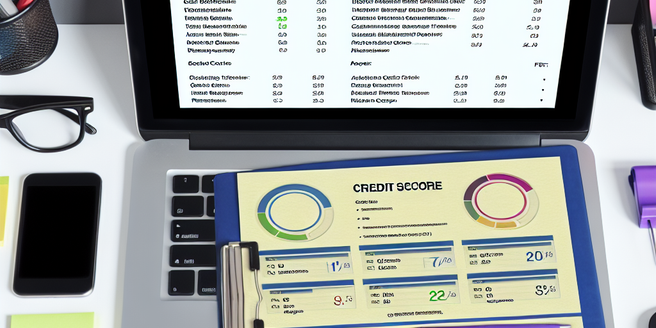Understanding Your Credit Score
The first step to avoiding bad credit is understanding your credit score. Your credit score is a numerical representation of your creditworthiness, which lenders use to assess your ability to repay loans. It is calculated based on various factors including your payment history, the amount of debt you have, the length of your credit history, the types of credit you have, and recent inquiries for credit. Maintaining a high credit score should be a priority for every individual as it can impact various aspects of your life including your ability to borrow money, the interest rates you are offered, and even your ability to rent a house or get a job.
Avoid Maxing Out Credit Cards
Another crucial aspect of maintaining good credit involves management of your credit cards. Maxing out your credit cards can seriously hurt your credit score as it signifies to lenders that you are relying heavily on borrowed money. Additionally, it increases your credit utilization rate, which is a factor in the calculation of your credit score. Your credit utilization rate should ideally be less than 30% of your credit limit. Therefore, always keep an eye on your credit card balances and strive to pay them off in full each month.
Timely Payment of Bills
Your payment history contributes significantly to your credit score. Hence, making sure that all your bills are paid on time is vital to maintaining good credit. This includes not only your credit card bills, but also your utility bills, rent, and any other recurring bills. Delayed payments are reported to credit bureaus and can lower your credit score. Setting up automatic payments can help ensure that you never miss a due date.
Avoid Applying for Multiple Credit Cards
While having multiple credit cards can increase your total credit limit and reduce your credit utilization rate, applying for too many credit cards at once can prove detrimental to your credit score. Each time you apply for a new credit card, a hard inquiry is recorded on your credit report, which can ding your credit score. Therefore, avoid making multiple applications within a short time frame.
Implications of Closing Unused Credit Cards
It is a common misconception that having too many credit cards can hurt your credit score and therefore, closing unused ones is a good idea. However, doing so can decrease your total credit limit and increase your credit utilization rate, thereby lowering your credit score. It can also reduce the average age of your credit accounts, which can further impact your credit score. Therefore, instead of closing unused credit cards, it is advisable to use them sporadically to keep them active.
The Importance of a Budget Plan
Having a budget plan in place is integral to maintaining good credit as it helps you manage your income and expenses effectively. It allows you to track where your money is going and ensure that your spending does not exceed your income. Most importantly, it helps prevent the accumulation of debt, which is one of the main causes of bad credit.
Stay Alert to Changes in Your Credit Report
Regularly checking your credit report is important as it allows you to stay alert to any changes that might impact your credit score. It also helps you identify any errors or fraudulent activities on your report. In case of any discrepancies, you should report them to the credit reporting agency immediately so they can be rectified.
Debt Consolidation: Yes or No?
Debt consolidation can be a good strategy for managing multiple high-interest debts. However, if not done correctly, it can lead to a spiral of increased debt and negatively impact your credit score. Therefore, before deciding to consolidate your debts, it is important to research all your options and perhaps consult a financial advisor.
Role of Emergency Savings in Protecting Credit
Having an emergency savings fund can protect your credit by providing a safety net in case of unexpected expenses or loss of income. Without a savings cushion, you might have to rely on credit to cover such unexpected expenses, which can lead to debt accumulation and lower your credit score.
Utilization of Credit: How Much is Too Much?
While credit can be a useful tool, it is important to understand its correct utilization. Using too much credit or using it for wrong purposes can lead to debt accumulation and lower your credit score. As a rule of thumb, your credit utilization rate should not exceed 30% of your total credit limit. Furthermore, it is important to use credit responsibly by making purchases that you can afford to pay off in full each month.
By following these financial habits, you can avoid bad credit and ensure a healthy financial future.


